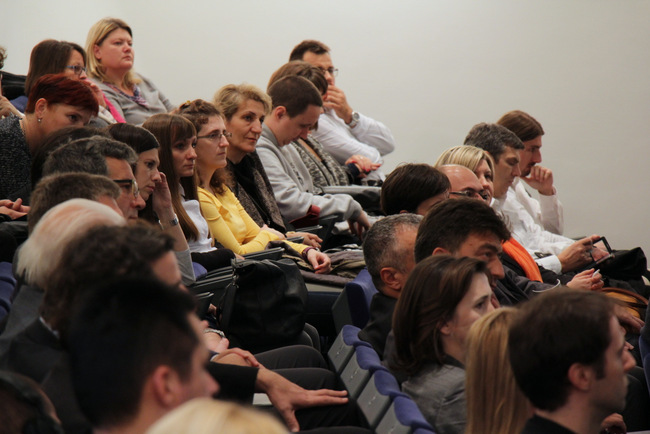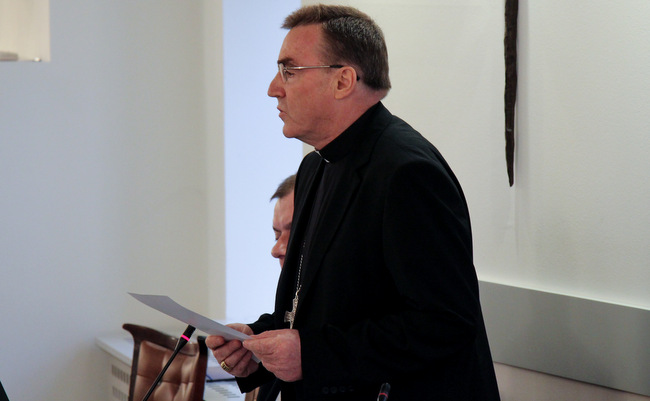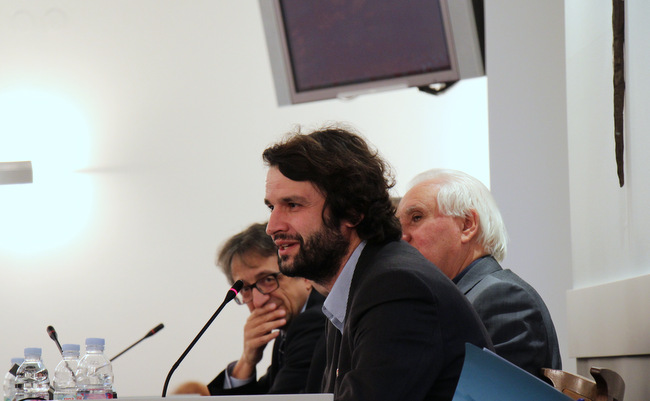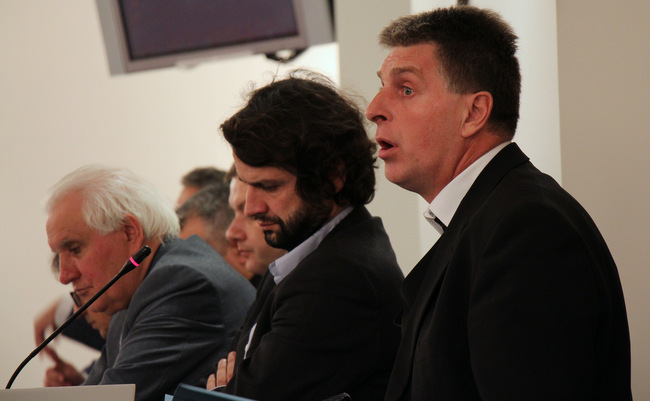
On Tuesday, 20 October 2015, the Catholic Faculty of Theology and the Office for Religious Education in Schools of the Archdiocese of Zagreb organized a roundtable discussion
The importance of religion and religious education in the national curriculum, held at the Central administrative advisory body of the Archdiocese of Zagreb - Nadbiskupski duhovni stol (NDS).
Josip Bozanić, the Archbishop of Zagreb and Great Chancellor of the Catholic Faculty of Theology, attended the roundtable discussion as well and in his opening remarks he expressed a desire for all roundtable participants to set off in a true and honest quest for ‘common threads’ that have been connecting religious education and education in its integrity. He stressed that a wider community needs to be included in the development of the national curriculum and not be work of just one person, interest group, lobby or party.
Education, the Cardinal believes, is the possibility to systematically initiate a person into a relationship with reality. He said that achieving freedom in education is thus a benchmark for freedom in a particular society. Cardinal Bozanić further made remarks on the challenges Croatian society is facing in the process of globalization. He added that our schools and universities have to cross a long way of transformation in order to truly guarantee the right to full freedom of education.

Cardinal Bozanić invited all participants to engage in a dialogue on matters of common good, and added that education is definitely one of them. In our Croatian society it is important to relentlessly promote dialogue at all levels, the Cardinal said, and concluded by inviting those actively involved in the Croatian education curriculum reform not to forget the person and not to sacrifice him/her lightly to some economic and market goals but to make sure that the education system enables his/her personality to fully develop. It is not possible to achieve this without observing the person as a whole, i.e. without promoting his/her spiritual, moral and religious dimension, Cardinal Bozanić said.
Prof. Hrvoje Sikirić of the Zagreb Faculty of Law gave the opening lecture. In his lecture he presented the legal framework of religious education on Croatian and international level. He said that the existing legal framework is satisfying as it focuses more on education and less on upbringing and stressed that the basis and aim of the entire education system should be a person as a whole.
Prof. Željko Tanjić, the Rector of the Catholic University of Croatia, said that in society we come across different views on the importance of religion in education. Religion offers us something that touches people’s lives and that if we left it out it would be a mistake, he underlined.
Prof. Boris Jukić of the Institute for Social Research in Zagreb, the head of the comprehensive curriculum reform reminded us in his speech about the research which showed religion is well-accepted in schools. It is a subject which enables pupils to begin a dialogue and discuss a specific topic, unlike other subjects which are more instructive and focused on mere adoption of facts, Jokić said.

Prof. Vlatko Previšić, the Dean of the Faculty of Humanities and Social Sciences, stressed the need for humanization of the education system and pointed to the lack of classical virtues in society such as faith in good and honesty. He brought attention to the dangers of quantification of the person, as well as the existence of a metaphysical crisis of the primal ideal of a person. Dean Previšić wondered whether religion contributed to resolving that crisis.
Religion has its place in the tradition of education, and religious education may contribute to dialogue, culture of discussion and argumentation, said Josip Burušić, Ph.D. of the Institute of Social Sciences Ivo Pilar. Unfortunately, he continued, a different impression is imposed on the Croatian public. He argued how key problems in the Croatian education are inequality, increase in social differences and inefficiency.
The last lecture was given by Prof. Tonči Matulić, the Dean of the Catholic Faculty of Theology who expressed a concern about what kind of treatment religious content shall have in other subjects in the new reform.

How are religious implications of other subject going to be treated and whether Religion shall be a mere alternative to Sunday school or is it going to serve its original purpose - to promote and to present the basic integral principle of the overall knowledge presented in school, are only some of the questions dean Matulić asked experts in charge of the curriculum reform.
The roundtable discussion led by Asst. Prof. Nenad Malović ended with a debate.
Press Office of the Archdiocese of Zagreb


